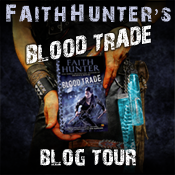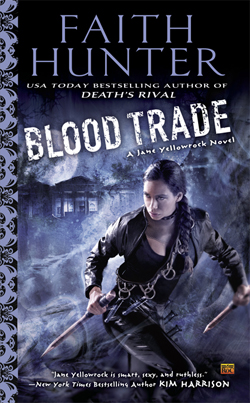I make it a habit not to comment on politics and such here very often. And I shall again try to do so with this post. But given recent events, I do want to share some thoughts on the Boston Marathon attack, terrorists, etc. Because these issues have faced our country boldface since September 11, 2001, and we continue to wrestle with how to react.
It’s always interesting to me how some people want to apply Western reasoning to people whose minds don’t operate like ours. Muslim extremists, Chechnian extremists, sociopaths — you can’t say if I was ignored, I’d stop crying for attention, so ignore them and they’ll go away. Because they don’t operate on the same system of logic we do. For all we know, ignoring them will make them more determined. After all, these are patient people who spend years planning their attacks. They don’t tend to just fly off the handle and strike spontaneously. Meticulous planning is a part of their process. These are calculating people with specific goals, however warped those might seem to us. So when I hear people say: “Want to end fear of terrorism? Shut off the TV” or “keep on living,” it doesn’t compute to me.
Now, I am not in favor of brutality. I am not in favor of a country that has always valued life and held high ideals about morality and honor in how we treat others abandoning that tradition entirely. However, I am reminded of what a friend, a former U.S. intelligence officer, once told me decades ago. This was before September 11, 2001 by almost 10 years, in fact.
He said: “You can’t fight these kinds of people by being nice. You can’t treat them as operating under the same logic as everyone else. That’s just not who they are.” He went on to explain how the Russians dealt with terrorists when their people were attacked in the 80s. “The Russians found the terrorists, decapitated them, cut off their balls and sent the heads with balls stuffed in their mouths back to their families. Terrorists left the Russians alone.”
Brutal, yes. Horrifying even. I’m not suggesting it.
But his point was that when you deal with people who don’t think as you do, you have to approach them differently than people who do. You have to change tactics, take risks, and sometimes up the scale of response, as unpleasant as it may be.
I have spent a lot of time working cross culturally–in Ghana, Brazil, Mexico and other places–both living and working with people and working hard to understand who they are, how they think, how they view the world. My goals was never to impose my values or perspective but to understand theirs and offer tools they could apply in context to solve problems. I believe we had a great deal of success. Certainly we never heard the kinds of complaints so many other foreign groups get about trying to make them like us. I took pride in that. Still, do.
As a result of that time, I learned how to listen and study more, different questions to ask, and became aware of a much bigger box than the one in which I typically live. And it broadened my world in ways I can’t escape and don’t want to. The lens through which I view the world is a different one now, and it is through that lens that I view anyone I encounter whose actions, attitudes, culture, etc. are different from my own. And that’s the case with these terrorists who attacked the World Trade Center, airlines and the Pentagon. I feel certain it’s the case with those who attacked Boston as well. And I know it’s different with those overseas who continue to terrorize or plot terror and attacks on others around the world.
When I worked with African or Brazilians, I very quickly learned I couldn’t assume they think as I do. That was a direct route to conflict. I found myself surprised at times by the differences in our perspectives, how our minds worked. Not that they were necessarily wrong. I was not there to make judgement calls. But they saw it differently, so to understand them and relate and work with them, I had to make an effort to understand their perspective. It was the only way we could find satisfactory solutions.
I believe the same is going to be true in dealing with terrorism and the many problems we face in the world today. As I watch our country grow more and more divided by ideologies, I am more and more certain that’s going to be required here as well. In a country founded on compromise, at least in government and media, we seem to have forgotten that history, the art of compromise. It’s us v. them. Every ideology must be right and the others wrong. We’ve seen the results of that already–failure of the government to solve problems, angry citizens, and an increased sense of disunity amongst Americans. Sometimes, I wonder what America is anymore? I don’t recognize it many times.
Whenever a different kind of logic is at work, such misunderstandings are a risk, but they are also a danger.
And that’s what we face with these sociopaths who plant bombs or shoot up schools or attack us in other ways–a different kind of logic.
I’m not proposing particular answers, per se, but I am suggesting that to continue looking at it through our cultural eyes and understandings, through our mores and beliefs, is never going to provide a solution that ends the problem. It may prolong it. It may ignore it. It may make it worse. It won’t bring peace or a conclusion.
That’s scary stuff when you think about it. I was reading author Dan Simmons’ 2006 essay imagining a message from a Time Traveler today and it demonstrates that very much, in so many ways. Until more of us realize this and act accordingly, I fear the heartache will continue. I fear the struggle will not be resolved, and I fear the harm will be caused as much by our ignorance as that of our attackers. And, if you ask me, we’ve suffered enough harm.
For what it’s worth…
Bryan Thomas Schmidt is an author and editor of adult and children’s speculative fiction including the novels The Worker Prince and The Returning, and the children’s books 102 More Hilarious Dinosaur Jokes For Kids (ebook only) and Abraham Lincoln: Dinosaur Hunter- Land Of Legends. His debut novel, The Worker Prince (2011) received Honorable Mention on Barnes & Noble Book Club’s Year’s Best Science Fiction Releases for 2011. His short stories have appeared in magazines, anthologies and online. He edited the anthology Space Battles: Full Throttle Space Tales #6 (Flying Pen Press, 2012) and is working on Beyond The Sun (Fairwood, July 2013), Raygun Chronicles: Space Opera For a New Age (Every Day Publishing, November 2013) and Shattered Shields with co-editor Jennifer Brozek (Baen, 2014). He also edits Blue Shift Magazine and hosts #sffwrtcht (Science Fiction & Fantasy Writer’s Chat) Wednesdays at 9 pm ET on Twitter and can be found via Twitter as @BryanThomasS, on his website atwww.bryanthomasschmidt.net or Facebook.



